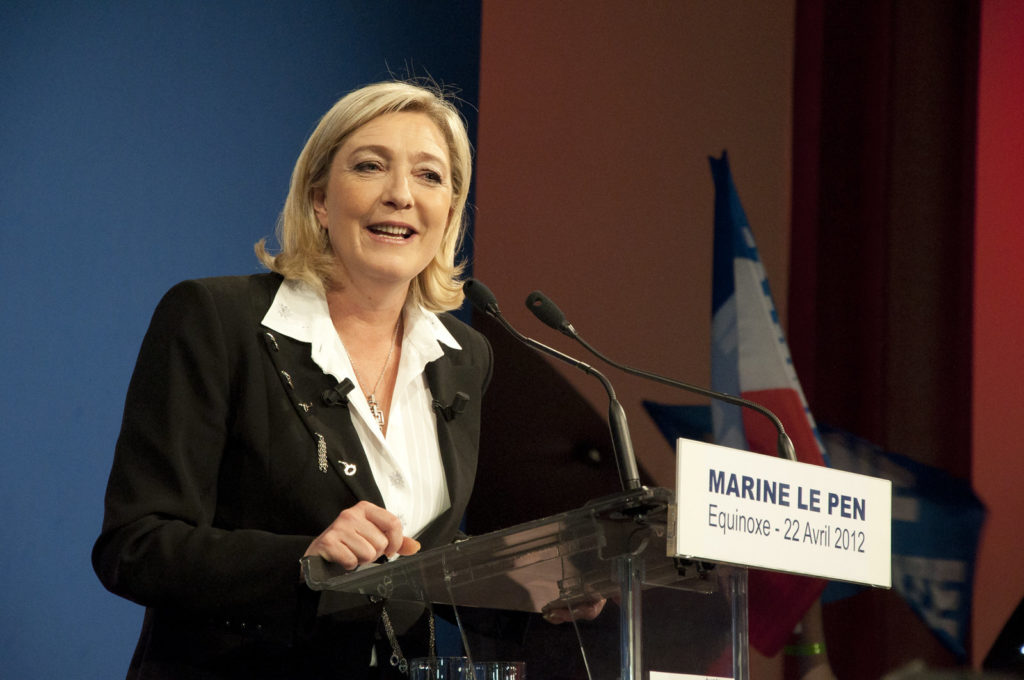French far-right leader Marine Le Pen condemned for going mainstream

French far-right leader Marine Le Pen has been sharply criticized for making her party too mainstream, belittling the far-right and ignoring her supporters. Experts and outsiders warn that this could cost her votes in next year’s presidential election.
The confusion intensified after the National Rally’s defeat in regional elections a week ago and came just before the party’s convention this weekend.
Le Pen is the undisputed leader of the anti-immigration party and her success is not expected to change at the two-day event in the southwestern city of Perpignan. The event is being organized by local mayor Louis Alliot, a former comrade of Le Pen’s who led the party in last year’s municipal elections. But the confrontation could be awkward when Le Pen is trying to build momentum for the National Rally.
Critics say Le Pen has blunted opposition to her party to make it palatable to the right. Because of that strategy, she has lifted the veil and sought to remove the stigma of racism and anti-Semitism that burdened the party for decades under the leadership of her father, Jean-Marie Le Pen. She even changed the party’s name from the National Front, as it was known under his father, who co-founded the party in 1972 and led it for four decades.
“The policy of accommodation, of rapprochement with those in power, even with those on the right, was severely punished,” Jean-Marie Le Pen said. “(It was) a political mistake and translated into an electoral mistake, and probably electoral failures,” he added, referring to the results of the regional election result and presidential vote to come in 2022.
The patriarch, now 93, has distanced himself from the party to raise its profile, but his criticism is shared by more moderate members who say his daughter has muddled the message of the party.
She wants to do better in the presidential election in 10 months than she did in 2017 when she reached the last round but lost to centrist Emmanuel Macron.
“Eternal seconds”
National Rally candidates, including several coming from the classic right, were defeated Sunday in all 12 French regions in an election where turnout was at an all-time low, with only one in three voters casting a ballot. Polls had suggested that the party, that had never governed a region, would win at least one this time. Instead, it lost nearly a third of its regional deputies in a vote seen as crucial to building a local foothold before the presidential election. A step that has been seen as overlooked by some.
“The local elections are the launching point for a rocket,” that could take Marine Le Pen to the presidential palace, Romain Lopez, mayor of the southwestern city of Moissac, said in an interview. “Today it seems that we are eternal seconds. This can … distract the voters of the National Rally for the presidential elections.”
Some local deputies, including Bruno Lerognon, deputy for the Southern Hérault region, resigned after losing regional elections.
In a bitter letter to Le Pen posted on Facebook, Lerognon criticized the party leader’s strategy to win voters from other parties as “absurd.” He said members of the party’s local federations were “odiously treated” – removed from running in the regional elections in favor of outsiders. He wrote that “clannishness” has “divided” the local far-right, referring to long-standing criticism of power clans in national assemblies whose votes are decisive. The next day, Le Pen replaced him.
In western France, all four members of a small local federation resigned between two rounds of regional elections. None of the four were on the local election lists – they claim to have been “excluded” by higher authorities. They supported the “strategy of defeat” that emerged at the party’s 2018 convention in Lille, where Le Pen first proposed changing the party’s name and cutting remaining ties to her father.
Gilbert Collard, a party’s prominent figure and a European Parliament lawmaker, criticized the transparency strategy as a “trap.” He announced he would not attend the convention.
Mr. Lopez, the mayor of Moissac, will attend the meeting and hopes his complaints and those of others will be heard.
Mr. Lopez, 31, supports Le Pen’s rapprochement with other parties and attributes her broad voter appeal to her election last year, which was a surprise for the previously left-leaning town.
But he argues that the party hierarchy is isolated from some, if not all, of its key local bases. State officials treat local delegates like children and “dictate to them everything about how to communicate, how to campaign locally,” Lopez said. “When everything is imposed from the top, you have a national strategy (…) that is disconnected from the reality of individual cities and regions.”
He’s not sure the party will give local representatives like him more than the five minutes they get at roundtables, but he hopes he’ll be heard.
“If you’re in self-satisfaction, if you refuse to see the mistakes, you’re going to hit a wall,” he said.